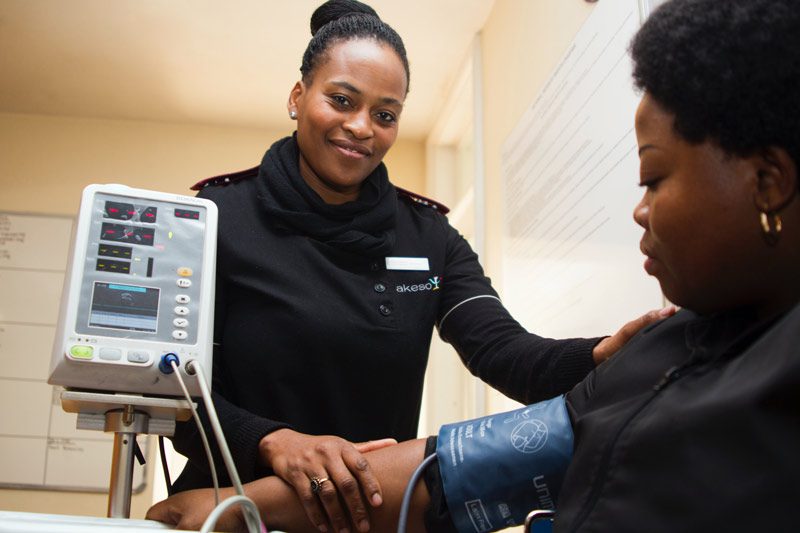Depending on where and who you are, you might get access to excellent care when you are sick or injured. Not everyone is so lucky, however. Health disparities are all too common in the United States, causing poor outcomes in patient care for the most vulnerable people.
The good news is the growing awareness of the role of healthcare advocacy in helping improve patient care and promote better outcomes. But what is healthcare advocacy, and why is it so important?
What Is Healthcare Advocacy?
Healthcare advocacy encompasses any activity that helps patients get the care they deserve within the healthcare system. A healthcare advocate helps patients as they work with their doctors and nurses to receive care, facilitating communication and trust. They might also help a patient navigate the insurance and billing process, especially for people who lack health literacy or are experiencing cognitive decline.
Healthcare advocates can have formal or informal roles within the healthcare system. Healthcare advocacy is about ensuring everyone has access to quality healthcare and fully understands their options. Communities often operate advocacy programs that focus on the unique needs of the population to promote better healthcare for all.
Why We Need Healthcare Advocacy
The healthcare system in the United States is extremely complex. With such a huge mix of private and government healthcare plans to choose from, selecting a plan and paying for care can be challenging. Many people struggle to understand which services are covered, how much they are responsible for paying, and which providers they can see.
Aside from this, patients often face discrimination in healthcare settings, whether for their race, socioeconomic status, sexual orientation, or disabilities. These patients can face substandard care or find they do not trust their healthcare providers.
These factors affect patient outcomes in several ways. Those who worry about insurance covering their care might postpone going to the doctor, allowing their conditions to deteriorate until they need emergency services. It’s much easier to treat conditions in their early stages, and outcomes are likely to be better if patients see a doctor right away, at the first sign of trouble.
Another issue that can arise is a lack of trust or ability to communicate between healthcare providers and patients. When there is a language barrier or implicit biases at work, it can be challenging for patients to communicate their needs or trust their healthcare providers. Without health advocates, patients in these situations may not receive the care they need.
Who Can Advocate for Patients?
For many people, their best healthcare advocate is a loved one. A spouse, parent, or adult child can oversee loved ones’ care and ensure they have all the information needed when making healthcare decisions. They might also be able to help when there are language barriers.
Professional advocates work in hospitals and can assist patients who do not have the support or knowledge they need to get the best possible health outcome. Medical social workers might also step into this role, though their duties are a bit different from those of a professional healthcare advocate.
Nurses also play an important role in patient advocacy. Advocacy in nursing is critical since nurses are responsible for most patient care in the hospital and often form strong bonds with their patients.
Nurses advocate for patients in many ways, from helping patients understand their treatment plan to mediating and valuing the patient’s autonomy and privacy. Nurse advocates can sometimes make the biggest difference in patient outcomes due to their ability to bridge the gap between doctors, patients, and families.
The Need to Increase Health Advocacy and Health Literacy
The good news is that health advocacy is on the rise. There is more awareness than ever that some people need help and support during a vulnerable time in their lives, such as during a hospital stay. People with cognitive and mental health concerns are even more at risk and need someone to help them make the best possible decisions for their care.
Healthcare advocacy is something we all might need one day. The best way to help is to boost advocacy in your community and support programs that reduce health disparities and promote health literacy in the United States. If you know people struggling to understand their health coverage or need someone to speak up on their behalf, you can help ensure that they are getting the care they need.
Doctors and nurses work long days, and as much as they want to advocate for patients, their time is limited. Healthcare advocates can bridge the gap, contributing to better health outcomes.
If you or someone you know experiences mental health issues, it is important to seek help from a qualified professional. Our Resource Specialist can help you find expert mental health resources to recover in your community. Contact us now for more information on this free service to our users.
About the Author: Sarah Daren has been a consultant for startups in multiple industries, including health and wellness, wearable technology, nursing, and education. She implements her health knowledge into every aspect of her life, including her position as a yoga instructor and raising her two children.
Photo by Hush Naidoo Jade Photography on Unsplash
The opinions and views expressed in any guest blog post do not necessarily reflect those of www.rtor.org or its sponsor, Laurel House, Inc. The author and www.rtor.org have no affiliations with any products or services mentioned in the article or linked to therein. Guest Authors may have affiliations to products mentioned or linked to in their author bios.
Recommended for You
- The Truth about Relapse in Addiction Recovery - April 14, 2025
- The Power of Peer Support in Mental Health Recovery - April 10, 2025
- Artificial Intelligence in Anxiety Management: How AI Helps Users Cope with Anxiety Symptoms - April 3, 2025





